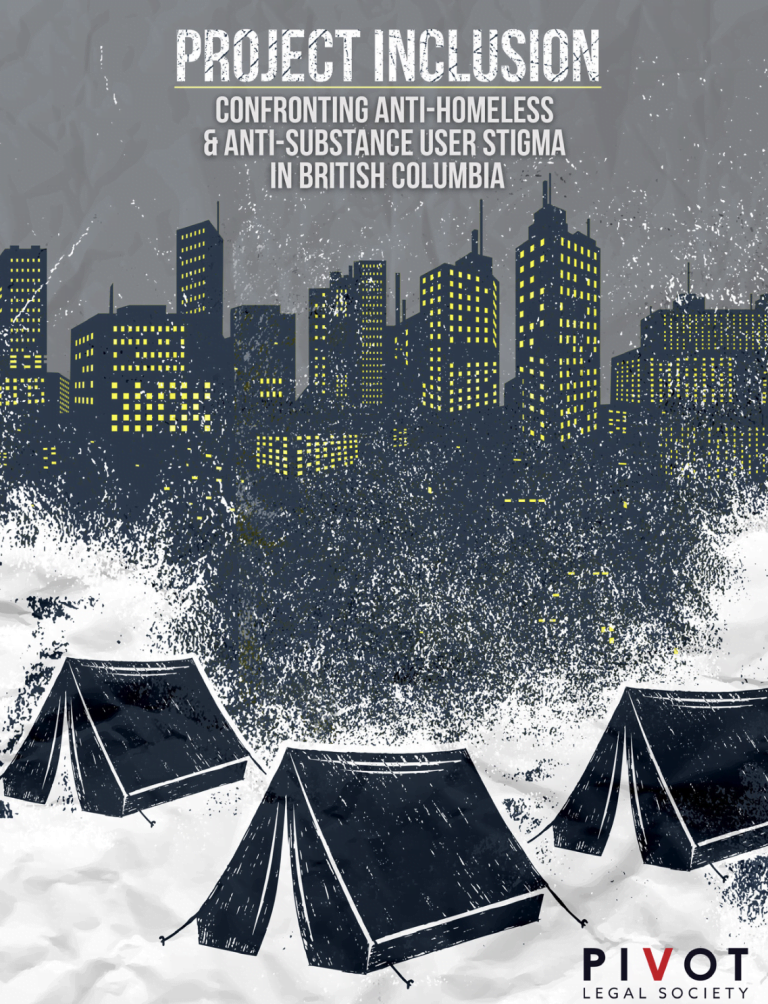13 search results
for
Poverty and economic inequality
Service gaps and barriers
Recommendation 30: The Ministry of Housing and Municipal Affairs must immediately improve the number and accessibility of shelter options to ensure that everyone in BC always has access to a physical location where they can sleep, store belongings, and attend to personal care and hygiene in safety and without threat of displacement or sanctions. To do so they must:- work in partnership with BC Housing to reinstate nightly turn-away counts at shelters and use data to ensure that there are adequate shelter beds to address the level of need in each municipality;
- with the exception of temporary Extreme Weather Response shelters, recognize that overnight-only shelters are untenable for residents and provide funding to expand shelter hours; and
- provide shelter residents an accessible and independent complaint process.
-
Category and theme:
Audience:
Groups affected:
Service gaps and barriers
Recommendation 31: All government actors and health care providers must recognize the specific and indispensable expertise of people with lived experience. Increase peer-run and peer-delivered services and peer-support positions within government services by:- developing a provincial advisory board of people with lived experience of homelessness for BC Housing;
- establishing provincial best practices for engaging people with lived experience of poverty, homelessness, and substance use in service delivery modelled on GIPA (Greater Involvement of People living with HIV/AIDS), MIPA (Meaningful Involvement of People Living with HIV), and NAUWU (Nothing About Us Without Us) principles;
- collaborating with peer-led organizations to audit all provincial services (hospital, health, income assistance, shelter, housing) to identify and fund opportunities for peer engagement in service provision and planning; and
- developing a model for peer-involvement in the design and execution of homeless counts.
-
Category and theme:
Audience:
Groups affected:
Operationalizing stigma-auditing
Recommendation 34: In its first year in operation, the BC Human Rights Commission should prioritize stigma-auditing areas of law and policy that most directly impact highly stigmatized populations, including, but not limited to:- public space governance; income assistance and disability policy;
- housing policy and residential tenancy law;
- child welfare law and policy;
- policing law and policy;
- health policy related to mental health and substance use; and
- privacy law as it relates to people who live in public space and people who are criminalized as a result of substance use.
-
Category and theme:
